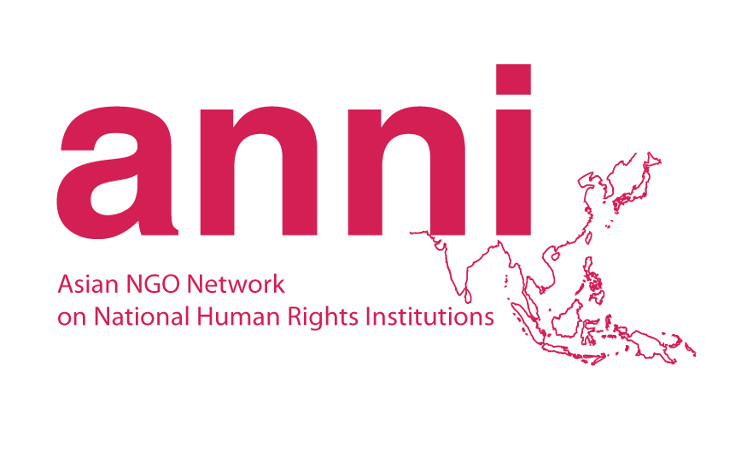(29 August 2016, Bangkok) – The Asian NGO Network on National Human Rights Institutions (ANNI) is greatly concerned by recent developments related to the National Human Rights Commission of Thailand (NHRCT). In its November 2015 Accreditation Report, the Global Alliance of National Human Rights Institutions (GANHRI, formerly known as International Coordinating Committee of National Human Rights Institutions) recommended the NHRCT to be downgraded to “B” Status.1 This happened after a one-year period during which the NHRCT could have addressed concerns that GANHRI raised in 2014.
The NHRCT was criticised for key issues that determine the effective performance of a National Human Rights Institution (NHRI), including on: selection and appointment process of the Commissioners; functional immunity; ability to address human rights issues in timely manner; and independence and neutrality. Another note made by the Sub-Committee on Accreditation (SCA) of GANHRI was that in the situation of a coup d’état or a state emergency, NHRI is expected to conduct itself with a heightened level of vigilance and independence.
Lack of effective functioning of the current NHRCT may hold it back in its purpose of establishment, being the promotion and protection of human rights in Thailand. The NHRCT was strongly criticised for its delays in investigating and issuing reports on the political violence in 2010 and 2013.2 Under its protection mandate, based on the Paris Principles, the NHRCT is both entitled to, and responsible for addressing and seeking to prevent human rights violations through: monitoring; inquiring; investigating; reporting on human rights violations; and establishing effective complaint handling mechanism.
During a recent media event in Bangkok, the NHRCT Chairperson addressed a statement that some reports had published about the Commission not responding to the Government and the Government not following NHRCT’s recommendations.3 We wish to reiterate that an NHRI should undertake rigorous and systematic follow up activities to promote and advocate for the implementation of its recommendations and findings, and the protection of those whose rights were found to have been violated.4 We call on the NHRCT to undertake follow up actions on its published recommendations, and also to publicise detailed information on the measures taken or not taken by the Government to implement its recommendations. We also call on the Thai Government to start responding to recommendations from the NHRCT and to provide detailed information on follow-up actions for better human rights protection in the country.
While ANNI welcomes and applauds the expansion of the NHRCT’s inclusiveness through its Sub-Commission on Human Rights Complaints Screening, we also wish to stress that in fulfilling its complaint handling mandate, the NHRCT should do so fairly, speedily and effectively through processes that are readily accessible to the public.
After the Referendum in Thailand, on 7 August 2016, there will be ten new organic laws, once the new Constitution comes into effect.5 We urge the Thai Government to ensure transparency in drafting these organic laws, in particular with regards to the NHRCT.
ANNI hopes that the new organic law on National Human Rights Commission shall allow the NHRCT to address all fundamental flaws raised by GANHRI’s last Accreditation Report, and ultimately allow the NHRCT to function more effectively in the promotion and protection of human rights in Thailand. Lastly, we urge the Thai Government to fulfil its responsibility in ensuring the existence of a Paris Principles-compliant NHRCT.
For a PDF version of the statement in English click here. For a Thai version of the statement, please click here.
About the Asian NGOs Network on National Human Rights Institutions (ANNI):
The Asian NGOs Network on National Human Rights Institutions (ANNI) was established in December 2006. It is a network of Asian non-governmental organisations and human rights defenders working on issues related to National Human Rights Institutions (NHRIs). ANNI has members that are national organisations from all over Asia. ANNI currently has 33 member organisations from 21 countries or territories. The work of ANNI members focuses on strengthening the work and functioning of Asian NHRIs to better promote and protect human rights as well as to advocate for the improved compliance of Asian NHRIs with international standards, including the Paris Principles and General Observations of the Sub-Committee on Accreditation (SCA) of the Global Alliance of NHRIs (GANHRI).
For further inquiries, please contact:
- Agantaranansa Juanda, NHRI Programme Officer, [email protected], +66 (0)2 6379126-7




